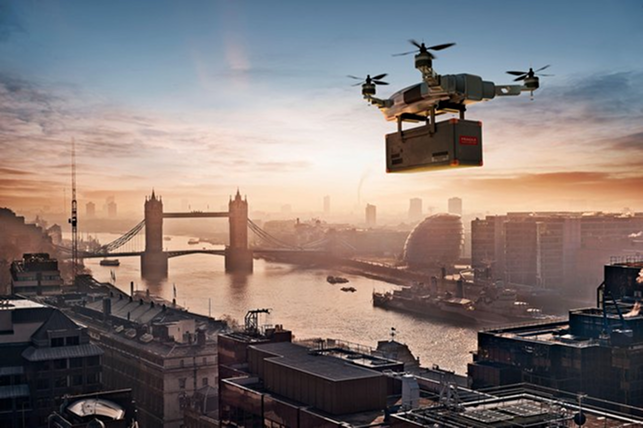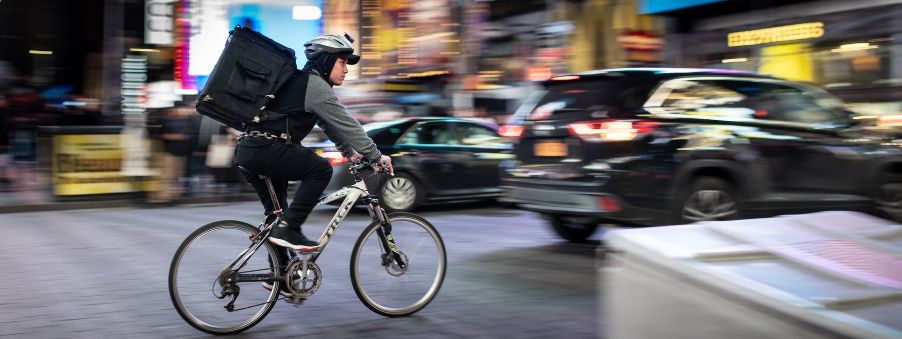The year 2020 will go down in retail history as one the most turbulent and unpredictable in living memory. The pandemic has fundamentally changed and continues to change the way consumers live, work, and shop. At the same time, retailers have to work around new challenges and complications that arise frequently, and are forced to continually adapt to an ever-changing new normal.
But out of chaos comes opportunity. This year has already seen a seismic shift from brick-and-mortar retail to e-commerce. As we survey the wreckage of 2020 with the fall into administration of many well-known retail brands such as Peacocks, Oasis, Warehouse, DW Sports and most recently Debenhams and Arcadia Group who own iconic retail brands such as Topshop, Miss Selfridge and Burton, we can also reflect on the success experienced by pure online retailers and traditional retailers who had the vision and foresight to invest in their digital offerings.
In this article, we set out our predictions for 2021, which promises to be another challenging and momentous year for retail:
Home Delivery will Continue to Grow
This year, online retailers such as Amazon, and delivery services companies such as FedEx and UPS, have experienced record demand and sales from customers ordering from home, as a result of the pandemic and resulting lockdowns and restrictions. E-commerce sales have surged, with 87% of UK households having made online purchases this year.
This trend is set to continue into 2021 with the likelihood that further lockdowns will be enforced in the new year and normal life not predicted to resume until late spring or early summer, when hopefully vaccination programmes will have been completed. This means that consumers will continue to shop from home and, even when normality resumes, having experienced the convenience and value for money that online shopping offers, many consumers are unlikely to return to their previous shopping habits.
Partnerships between retailers and last-mile delivery companies are likely to continue in 2021 as retailers use their physical stores as hubs to fulfil locally placed online orders. Also, last-mile services are highly scalable for when demand fluctuates; this is achieved by using gig economy workers, and since the pandemic has caused the unemployment rate to soar, there is already a mobile workforce ready for retailers to tap into. If more retailers embrace this model, it will help to create jobs and speed up the economy’s recovery.
Investment will be made in Autonomous Technology
This has been on the horizon for some time, but with the pandemic-driven changes people have made to their shopping behaviour, it is likely that we will see more retailers invest in technology that makes autonomous deliveries possible in the future. Self-driving delivery vehicles and drone deliveries aren’t prevalent yet, but we predict that in the next year there will be a continued drive to fulfil this vision.
Ordering products online reduces the chance of coming into contact with people carrying the virus, but there is still the likelihood of contamination caused by poor hygiene at fulfilment centres and throughout delivery networks. Autonomous fulfilment and delivery reduce these risks, which will be a solid factor leading to accelerated acceptance of these new technologies. It also reduces operating costs by removing the need for a network of couriers or delivery drivers. In 2021, we will probably see more companies strive to make this a reality, and in the near future it is likely that self-driving vehicles and airborne drones will be used as part of retailers’ last-mile strategies.

Physical Stores will Transform into Fulfilment Hubs
As brick-and-mortar stores underperform due to the decrease in customer footfall, we expect retailers to convert these spaces into fulfilment hubs. There is huge potential in modifying the purpose of these stores so that they become mini-distribution centres. When paired with last-mile delivery services, retailers will be able to provide a quicker and better customer service.
Amazon and Apple are two companies who have already begun to implement this strategy. Although their efforts pre-date the COVID-19 pandemic, there can be no doubt that the development of e-commerce will accelerate this move and appear high on retailers’ list of priorities for 2021.
The great thing about this strategy is that retailers aren’t giving up all of their physical presence; the difference will be that not all of their estate will be brick-and-mortar stores. By using these spaces to support e-commerce, it allows retailers to expand their omnichannel offerings and appeal to a broader range of customers.
Store Design will Evolve
As mentioned in the previous point, physical stores will continue to play an important part in retail, even in light of the rise of e-commerce. They are, however, going through a period of transformation. Retailers are beginning to see the benefits of omnichannel retail, and are aiming to blend online and in-store shopping, while at the same time creating a more engaging, yet safer and socially distanced shopping experience.
In this modern age, the traditional brick-and-mortar store should no longer be considered as the final destination of the customer journey. By combining the strengths of physical stores and online, retailers will be able to create a model that turns a typical retail space into something special: an unforgettable experience centre.
Video Chat will be a Must-Have Sales Tool
Retailers are starting to realise the value that video chat has as a consultation and sales tool. This allows customers to browse a retailer’s website and have the option to connect with a sales associate or product expert at a time that is convenient for them. Currys PC World is one retailer who has already introduced a video sales tool. Launched as a 24/7 service at the start of November to help customers during the national lockdowns, their ShopLive service connects customers with its in-store colleagues via video.
Online consultations make it possible to share product videos, explain the technical aspects of a product, and walk consumers through features in a demo without the customer having to travel to a store. As well as increasing sales, it also increases a shopper’s trust in the brand.
If the customer wants a particular product, then they can decide on where and how they buy it. Do they order online, and have it delivered to their home? Or do they schedule a collection slot? Perhaps they reserve online and pay with cash in-store? Whatever their decision, it is clear that the future of retail means increased choice and flexibility for consumers. We expect more retailers to follow the lead of Currys PC World in 2021, launching their own video chat service to create a more engaging shopping experience, wherever the customer may be.

2021, a Year of Flexibility and Innovation
As technology continues to develop and the world around us continues to change, 2021 will be another significant year for the retail industry. We will continue to witness change, as our favourite brands adapt their business models to accommodate the modern consumer.
Online retailers will surge ahead, and traditional retailers will need to continue adopting elements of the online experience to encourage shoppers to keep visiting them, if they are to survive.
RMS is one of the leading providers of retail support services in the UK and Ireland. By utilising a nationwide workforce of skilled, flexible merchandisers, supported by flex, our state-of-the-art resource management system, we deploy teams of staff to support retailers across the country.
